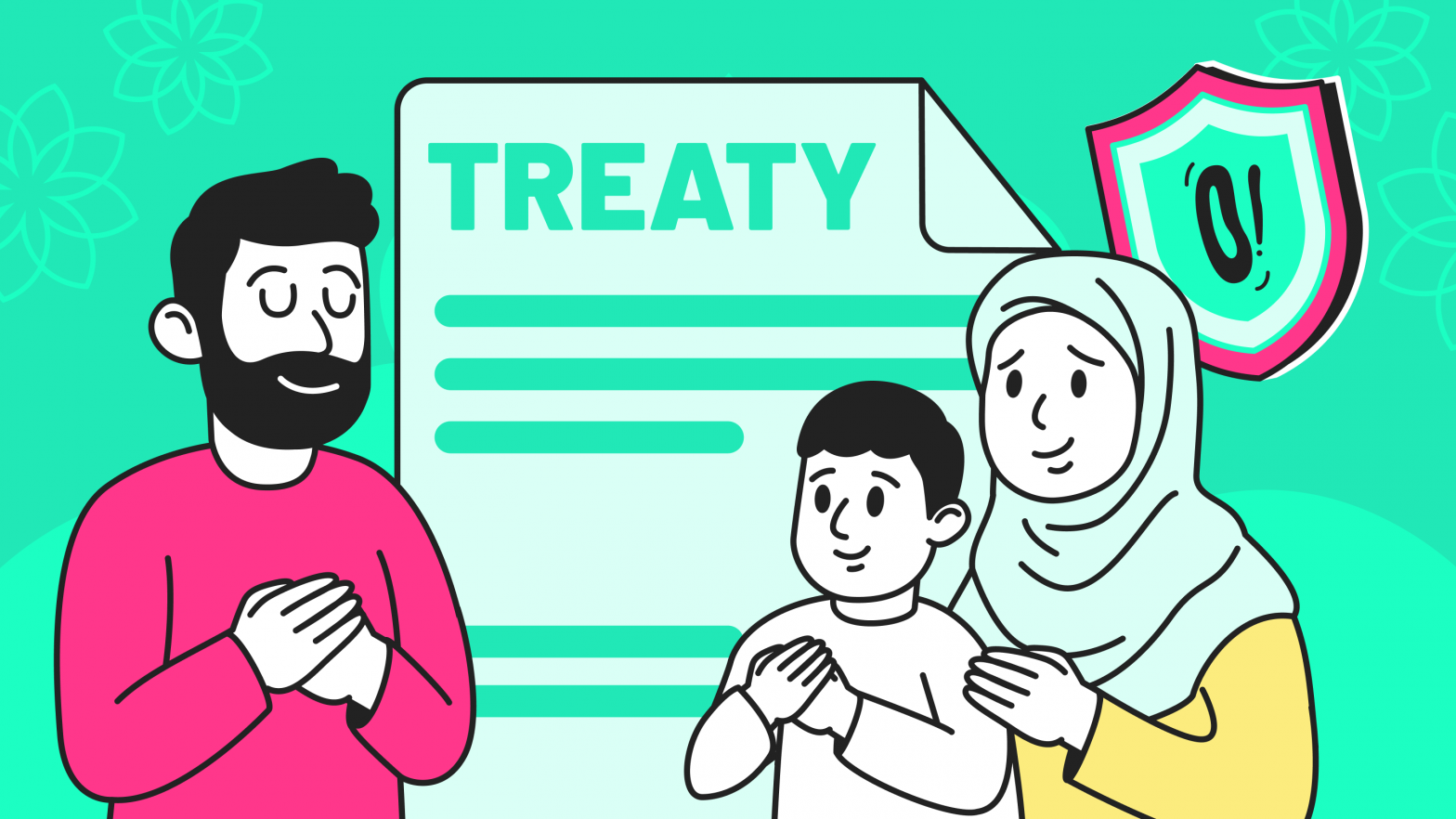A legacy of compassionate leadership and protection rooted in humanity
As we mark Maulidur Rasul this September (the 3rd moth in the Islamic calendar, i.e., Rabiulawal), we reflect on Prophet Muhammad SAW not just as a messenger of faith but as a leader in times of crisis. His governance was rooted in mercy but never passive. It was structured, strategic, and committed to protecting the vulnerable.
In an age of rising costs, climate disasters, and unpredictable health emergencies, many of us are living with a quiet sense of uncertainty. It is in this kind of world that the lessons of Prophet Muhammad’s compassionate leadership feel more relevant than ever.
Long before the existence of modern tools such as insurance or Takaful, the Prophet SAW showed how compassion and preparedness could anchor communities in times of uncertainty. How does it teach us about risk and protection today? And how can we translate that legacy into our own lives, families, and communities? Let’s explore with Ouch!
1. Collective care as a crisis strategy
One of the most striking lessons from the Prophet’s leadership is his ability to seek protection through cooperation, even with unlikely allies. In Madinah, he drafted one of the earliest known frameworks for pluralistic governance, the Constitution of Medina, where Muslims, Jews, and other tribes pledged mutual defence. The document explicitly stated, “The Jews have their religion, and the Muslims have theirs,” yet bound everyone to safeguard one another.
This spirit mirrors the essence of Takaful, where people of different backgrounds pool resources for collective security. This proves that protection need not be exclusive but can embrace diversity, ensuring none are left unprotected.
2. The Treaty of Hudaybiyyah: The risk that paid off
In the 6th year of the Hijrah calendar, Prophet Muhammad SAW had signed a peace treaty with the Qurasyh, the very tribe that had fought the Muslims. The terms seemed lopsided, but Sahih al-Bukhari (Hadith 2731) records how the Prophet had prioritised long-term stability over short-term pride.
This risk of compromise eventually paid off as it gave way to a period of peace that allowed Islam to grow stronger, teaching us that sometimes the best “coverage” comes from calculated compromise.
Modern financial protection works in the same way. Contributions may feel like a sacrifice at first, but with patience and trust, the long-term protection and security they create are priceless.
3. Safeguarding the vulnerable
Throughout his life, Prophet Muhammad SAW placed special emphasis on safeguarding those most vulnerable to hardship, such as the orphans, widows, poor, and the sick. When persecution in Mecca became unbearable, the Prophet had advised his companions to seek refuge in Abyssinia, under the just rule of the Christian King, the Negus.
Set out the land of Abyssinia. There is a king there by whom no one is wronged” (Narrated in Musnad Ahmad).
Here, protection came not from wealth or numbers, but from trust in the fairness and compassion of others. It is a reminder that true security often lies in safeguarding the most vulnerable. Takaful mirrors this principle, ensuring families and the vulnerable are protected even when hardship strikes unexpectedly.
4. Preparedness as a moral duty
The Prophet consistently reminded his followers to prepare for the unexpected.
It is not permissible for any Muslim who has something to will, to stay two nights without having his will written with him” (Sahih al-Bukhari, Hadith 2738).
Far from being morbid, this teaching reframed readiness as an act of mercy and duty for one’s family.
Similarly, Takaful is not just a financial product. It is a deliberate act of foresight to ensure our loved ones are not left exposed when life takes a turn.
Kindness as a Strategy, Not Sentiment
Rasulullah SAW was an exemplary leader who chose to lead with mercy and compassion. From the Constitution of Medina to the Treaty of Hudaibiyyah, from the migration to Abyssinia to personal wills, the Prophet showed by example how practical steps and a compassionate heart are necessary when facing uncertainty.
The Prophet had always chosen to respond with kindness even to those who were unkind to him. He had the wisdom to know when to act and when to endure.
As we reflect on these lessons, Takaful emerges not merely as a policy but as a continuation of a prophetic tradition where protection is rooted in mercy, shared responsibility, and the belief that no one should be left alone in crisis.
At Ouch!, this is the spirit we carry forward, where protection is simple, transparent, and rooted in care for you and your family. With this, we wish you Salam Maulidur Rasul!
Find out more about Pusara Pro by clicking here or download the Ouch! Takaful mobile app from the Google Play Store or Apple App Store today.
Disclaimer: The information in our blog articles and provided by our brand ambassadors/KOLs is for general insights only and not legally binding. We strive for accuracy but cannot guarantee the information’s completeness or reliability. For legal matters, consult official documents or contact an authorised Ouch! representative.
